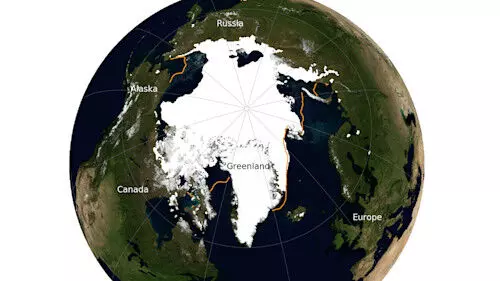NASA and NSIDC report warns of rapid sea ice melting: A dire threat to the planet

Rapid melting of sea ice at the Earth's North and South Poles has become a matter of serious concern for scientists. Scientists fear that this could become a new and dangerous trend. A recent report by NASA and the National Snow and Ice Data Center (NSIDC) has made this danger clearer.
According to NASA, on March 22 this year, when sea ice in the Arctic should have been at its annual highest level, its volume was recorded at only 5.53 million square miles (14.33 million square km). This is the lowest winter sea ice ever, which further increases the concerns of climate change.
By March 1, sea ice in Antarctica had decreased to just 764,000 square miles (1.98 million square km), which is equal to the second-lowest level ever recorded. NASA scientist Lynette Boisvert says, "We will enter next summer with even less sea ice than before, which is a danger signal for the future."
In February 2025, the amount of global sea ice was recorded to be 1 million square miles (2.5 million square km) less than the 2010 average. This area is equal to the eastern part of the US, which shows its severity.
Sea ice is not just a cold surface, but the cornerstone of the ecosystem of the Arctic and Antarctic. Its reduction can endanger the survival of polar bears, seals and other marine creatures. Ice reflects the sun's heat, but when there is less, the ocean absorbs more heat, accelerating global warming. The reduction of sea ice can make storms more powerful and increase coastal erosion.
Scientists measure the radiation pattern of sea ice with the help of satellites and compare it with the Nimbus-7 satellite data of 1970-80. According to NSIDC scientist Walt Meyer, "It cannot be said with certainty right now whether Antarctica's ice is decreasing permanently or this is a temporary change, but the trend of the last decades is presenting it as a serious threat."
Concrete steps are needed at the global level to deal with the growing crisis of climate change crisis.
